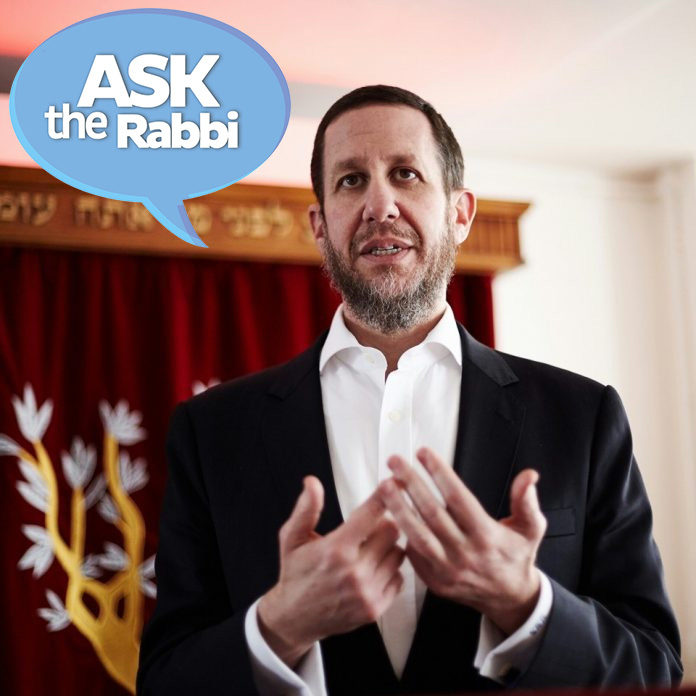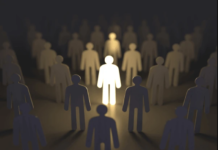
Dear Rabbi
I enjoy your column online and I seek your advice. This week communities around the world commemorate Yom Hazikoron, Israel’s Memorial Day. Many countries have their own Memorial Day but as a teacher and a Jew, I struggle to explain to people, whether in my classroom in New Jersey or some colleagues, as to why Jews outside Israel need to commemorate this special day. I would appreciate your sterling thoughts.
Kalman
Dear Kalman
In 1939 the Jewish world changed forever. While we suffered persecutions and exiles before, never did we face the threat of a “final solution” and then go on to lose so many Jewish lives, men, women and children in so short a period of time. A third of Jewish Europe was wiped out. The future was nothing but bleak.
Rudolf Hess, the commander at Auschwitz was tried at Nuremberg in 1946. During his trial he said the thinking was that if they could destroy the biological basis of Jewry in the East by complete extermination, then Jewry as a whole would never recover from the blow and ultimately come to an end.” “Even the millions of assimilated Jews of the West,” Hess said, “would be in no position and would have no desire to make good this enormous loss of blood and there would, therefore, be no future generation worth mentioning.”
Statistically, that should have indeed been the case. But what our persecutors didn’t know – or what they seemed to have ignored from persecutions previous to them is that Jewish people are governed by a different set of rules. Not by statistical fact but by an inexplicable conviction – a blatant miracle of continuous rebirth and a genuine belief in the future.
Binyamin Wertzberger was a young man when he was working the railroads in a Nazi death-camp. It was there that a Gestapo saw him staring heavenward one day and said to him mockingly: “Are you dreaming of Jerusalem? Are you imagining what it must be like to be there? Perhaps one day you will realise your dream!” And then with a chilling laugh he added: “If you’re lucky your ashes will blow in that direction.”
That became a defining moment for Wertzberger. Every day thereafter, he lived with a conviction and a determination to prove the beastly soldier wrong. “One day,” he promised himself, “I will be there, mind, body and soul.”
Binyamin survived the war and ultimately made his way to Jerusalem where he started a family and lived out his years. He was quite elderly upon retirement and made his way one day into the offices of the Jerusalem Heritage Foundation which preserves the sacred sites in and around Jerusalem. He asked simply: “I’d like a job.” They looked him up and down. “We don’t really have a job for you. You’re clearly quite elderly and beyond retirement.” He persisted: “I don’t want pay. I just want to do something. Perhaps you can give me to wash the stones of the Kotel – the Western Wall and keep it clean.”
If you’ve ever been to the Kotel you must surely wonder how the stones remain clean and how there is room for the innumerable notes put into the Wall daily for many decades. It’s because each morning Binyamin Wertzberger gets up around 5:00 AM and he is there cleaning the bricks, clearing out the old notes to make room for the new. You might wonder where an old man gets the drive, let alone the strength to do this. As he once explained: When he stands there he thinks back to that Nazi guard. He thinks back to that remark – and he proceeds to scrub away, a smile on his face, victory in his heart. “When I stand at the wall, I hear the voice of the Nazi officer, and I see the thousands standing there praying, and I smile. For this, I live.”
Yom Hazikoron is a day in which we pause to remember. For even as today we have a place we can call home once more, it comes at a price. Alas, there are those who still threaten our survival – who still think – mistakenly so – that they will drive us from our Holy Land once more. They remain oblivious to the likes of Binyamin Wertzberger and hundreds of thousands like him – millions in fact who have an unconquerable spirit. But along the way, there are those who fight for nothing more than to defend our Homeland and tragically some who lose their lives in the process. Yom Hazikoron is a day to remember them; to remember what they stood for – what we all stand for – and how, in their belief in the future, they made the ultimate sacrifice on our behalf so that we can make something of that future.
I remember once standing at the Kotel observing a Bar Mitzvah. The boy had no father. He had been on military duty and dropped himself on an explosive device in a busy marketplace to save the many others that were there. Ask yourself: Do you think he first stopped to consider who he was saving? Do you think he asked first, for their political affiliation? Are you Sephardic, Ashkenazi, pro-peace, anti-peace, Orthodox, Reform…are you a resident or an immigrant? He saw people – he saw his brothers and sisters and he did what he had to do.
On Yom Hazikoron we remember that father – all fathers, mothers and children – and we understand that Israel is my homeland – the Jewish people are my people – and that the people of Israel and the land of Israel will endure, survive and thrive forever more.
By Rabbi YY Schochet MA CIArb
RabbiSchochet.com
Twitter: @RabbiYYS
Facebook: facebook.com/Rabbiyys









